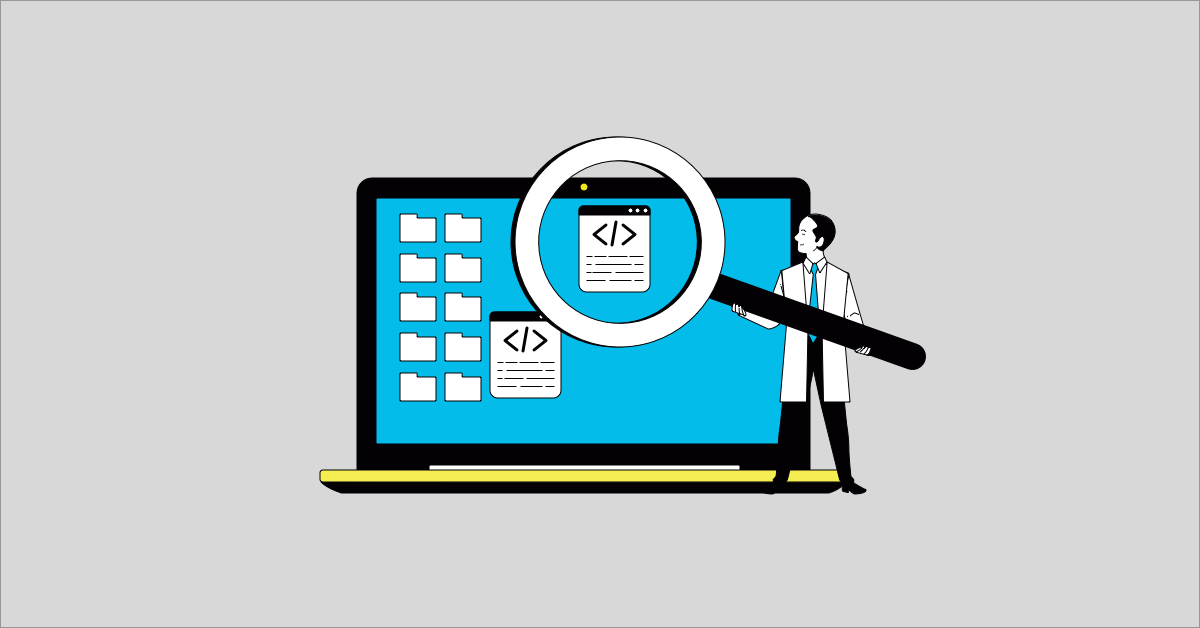Ever wondered what it takes to be a top-notch software tester? It's not just about finding bugs; it's about ensuring a seamless user experience and delivering high-quality software. This requires a diverse skill set, blending technical expertise with sharp analytical abilities and clear communication. Whether you're just starting your QA journey or you're a seasoned pro looking to refine your skills for testing, this guide is your roadmap to success. We'll explore the essential skills that every software tester needs, from mastering automation tools to effectively communicating with developers. We'll also delve into specialized areas like performance and security testing, giving you a comprehensive overview of the skills needed to thrive in this dynamic field.
Key Takeaways
- Mastering both technical and soft skills is crucial for software testers: Technical proficiency, analytical thinking, clear communication, and adaptability are essential for success in QA, ensuring thorough testing and efficient collaboration.
- Continuous learning and specialization are key to staying competitive: The ever-evolving tech landscape demands testers embrace new technologies, tools, and methodologies, specializing in areas like performance and security testing.
- Effective testing involves a strategic approach to problem-solving and project management: Developing a critical eye, prioritizing tasks, understanding the SDLC, and collaborating effectively within a team contribute to efficient testing and high-quality software.
What Are Essential Testing Skills?
Software testing is more than just finding bugs. It demands a diverse skill set, blending technical know-how with sharp analytical abilities and clear communication. A skilled software tester acts like a detective, uncovering hidden issues and ensuring a smooth user experience. Whether you're just starting your career in QA or you're a seasoned pro, understanding these core skills is crucial for success. They're your toolkit for delivering high-quality software and contributing to a successful development team.
Think of software testing skills in a few key areas: technical expertise, analytical thinking, communication, and adaptability. Technical skills are the foundation. You'll need to understand different software development life cycles (SDLC) and be comfortable using various testing tools. Analytical thinking helps you design effective tests and pinpoint the root cause of problems. Clear communication ensures everyone understands the issues you've found and how to fix them. Finally, adaptability is key in the ever-evolving tech world. Continuous learning and a willingness to embrace new technologies will keep your skills sharp and relevant. At MuukTest, we value all of these skills and use them to provide comprehensive test automation services to our clients.
Build Technical Proficiency
In software testing, technical skills are your foundation. They're how you interact with the software, dissect its behavior, and pinpoint issues. A strong technical base lets you understand the code, use the right tools, and communicate effectively with developers. This section covers two key areas: programming languages and testing tools/frameworks.
Learn Key Programming Languages
While you don't need to be a coding whiz, understanding programming basics is crucial. Knowing how software works under the hood helps you design better tests and understand where bugs are likely to hide. It also bridges the communication gap between testers and developers, leading to smoother collaboration and faster fixes. Focus on languages relevant to your testing environment, such as Java, Python, or JavaScript. Even a basic understanding of these languages can significantly improve your testing effectiveness. You'll be able to analyze code snippets, understand error messages, and communicate technical issues more clearly.
Use Essential Testing Tools and Frameworks
Testing tools and frameworks are your allies in finding and reporting bugs efficiently. They automate repetitive tasks, manage test cases, and generate detailed reports. Selenium, a popular open-source tool, is a great starting point for browser automation. It supports multiple programming languages and allows you to automate interactions with web applications. Beyond Selenium, explore tools like Appium for mobile testing and Cypress for end-to-end testing. Familiarize yourself with different testing frameworks, understanding their strengths and weaknesses. A robust framework should be extensible, reusable, and compatible with your existing tools and workflows. Choosing the right tools and frameworks can dramatically improve your testing speed and accuracy, allowing you to cover more ground in less time. As you gain experience, explore specialized tools for performance testing, security testing, and other areas relevant to your projects. Building proficiency in these tools is an ongoing process, so stay curious and keep exploring.
Sharpen Your Analytical Thinking
Software testing isn't about randomly clicking buttons—it requires a structured, analytical approach. Think of yourself as a detective, piecing together clues to uncover hidden software bugs. This analytical mindset is crucial for dissecting complex systems, identifying bugs, and devising effective solutions. By breaking down large problems into smaller, manageable parts, you can pinpoint the root causes of issues and understand the interconnectedness of different software components. This systematic approach helps in finding bugs and in designing more robust test cases that cover a wider range of scenarios. At MuukTest, our AI-powered tools enhance this analytical process, allowing for more efficient and comprehensive testing. Learn more about how our services can benefit your team on our test automation services page.}
Develop a Critical Eye
Cultivating a critical eye is essential for any software tester. This means developing a keen sense of observation and skepticism, questioning every aspect of the software's behavior. Attention to detail is paramount—even seemingly minor bugs can have significant downstream consequences. A critical eye helps you spot inconsistencies, anticipate potential problems, and evaluate the software's overall quality. This skill goes hand-in-hand with effective troubleshooting. When you encounter a bug, you need to be able to investigate its cause, find workarounds, and propose solutions to the development team. For more information on how to improve your testing skills, check out our customer success stories.
Solve Problems Effectively
Software testing is inherently problem-solving. You're constantly faced with challenges: unexpected behavior, complex interactions, and hidden defects. The ability to troubleshoot effectively and use developer tools to triage bugs before submitting tickets is invaluable. This saves developers time and demonstrates your technical proficiency. Being able to pinpoint the source of a problem, whether it's a code error, a configuration issue, or a network glitch, is a key skill for any tester. This often involves using debugging tools, analyzing logs, and understanding the underlying architecture of the software. Ready to streamline your testing process and improve your problem-solving capabilities? Explore our pricing plans to see how MuukTest can fit your budget.
Communicate Clearly
As a software tester, you're not just finding bugs; you're a vital communication bridge between developers, product managers, and other stakeholders. Clear, concise communication, both written and verbal, is essential for reporting defects and working with developers to fix them. The clearer your communication, the faster the fix. This means explaining technical issues in a way everyone understands, regardless of their technical background. Strong communication skills ensure everyone is on the same page, leading to quicker resolutions and a higher-quality product.
Write Effective Reports and Documentation
Accurate, detailed reports are essential. They're not just about listing bugs; they're about providing a clear picture of the issue. A well-written bug report gives developers all the information they need to reproduce the problem and understand its impact. Include steps to reproduce the bug, the expected versus actual results, and any relevant screenshots or videos. Effective documentation helps track issues and serves as a valuable resource for future testing cycles. Think of your reports as a roadmap guiding developers toward a solution. The more detailed and precise your reports, the less back-and-forth with the development team, saving everyone time. Clearly documenting defects empowers developers to address them efficiently.
Collaborate with Developers and Stakeholders
Software development is a team effort. Testers need to collaborate effectively with developers, product managers, and stakeholders throughout the SDLC. This means actively participating in discussions, asking clarifying questions, and offering constructive feedback. Collaboration is especially crucial in Agile environments, where development is closely tied to customer needs and teamwork is paramount. Agile methodologies often involve daily stand-up meetings and sprint reviews, providing opportunities for testers to share insights and ensure the final product meets everyone's expectations. Building strong relationships with your colleagues makes the entire development process smoother and more efficient.
Adapt to Change
In software testing, adaptability is essential. The tech world is constantly evolving, so testers need to be flexible and willing to learn new things. This means being open to new testing methodologies, tools, and project requirements. Sometimes, you might even need to switch gears mid-project, so rolling with the punches is a must. Think of it as a continuous learning process—the more adaptable you are, the more valuable you become. The ability to learn new technologies and adapt to changing project requirements is a core skill for software testers.
Embrace New Technologies
Staying ahead of the curve means keeping up with the latest testing tools and technologies. Automation is becoming increasingly important, so familiarity with these tools and frameworks is a huge plus. Knowing how to write and maintain automated test scripts can significantly improve your efficiency. Understanding Agile methodologies, where development is closely tied to customer needs, is also crucial. This approach emphasizes collaboration and flexibility, allowing you to respond quickly to changes and deliver high-quality software.
Learn Continuously
Continuous learning is essential in software testing. Whether it's through online courses, workshops, or staying updated on industry blogs, a commitment to learning will help you stay relevant and competitive. The more you learn, the better equipped you'll be to handle new challenges and contribute to successful projects. A desire to learn and grow is a valuable asset for any software tester. This not only helps you stay current with the latest trends but also demonstrates your dedication to the craft. Resources like BrowserStack emphasize the importance of continuous learning and adaptability, highlighting the need for testers to constantly evolve their skillset.
Develop Specialized Testing Skills
As software evolves, so do the skills required to test it effectively. Beyond the fundamentals, cultivating specialized testing skills can significantly enhance your value as a QA professional. This means diving deeper into specific areas like performance, security, and usability testing.
Master Performance Testing
Performance testing is crucial. It helps you evaluate how software performs under stress, like during peak traffic or when resources are limited. Think of it as a stress test for your applications. By mastering performance testing, you can identify bottlenecks and ensure the software handles the expected load. This involves understanding metrics like response times, throughput, and resource utilization. For a broader look at valuable skills in software testing. Focusing on performance testing ensures a smooth user experience even under pressure.
Understand Security Testing
In today's interconnected world, security is paramount. As a QA professional, understanding basic security principles is no longer optional—it's essential. Familiarizing yourself with common vulnerabilities can help you identify potential security flaws before they're exploited. This knowledge allows you to contribute to building more secure and reliable applications.
Conduct Usability and UX Testing
Usability and user experience (UX) testing focuses on the end-user. It's about ensuring the software is intuitive, easy to use, and enjoyable. This involves evaluating aspects like navigation, design, and overall user flow. Effective usability testing contributes directly to user satisfaction, which can make or break an application's success. By prioritizing the user experience, you can help create software that people actually want to use.
Automate Your Tests
Automating tests is a key skill for any software tester looking to increase efficiency and improve the quality of their work. It involves writing scripts and using tools to execute tests automatically, freeing you to focus on more complex tasks. Let's explore how to write effective automation scripts and choose the right tools.
Write Automation Scripts
Writing effective automation scripts requires a blend of technical skills and analytical thinking. A strong foundation in programming is essential. Understanding how code works helps you analyze the software and create scripts that target specific functionalities. Tool familiarity is crucial for modern software testers. This knowledge helps translate your testing goals into actionable scripts. Beyond the tools themselves, understanding programming logic is key. Solid programming skills enable testers to effectively analyze code and design targeted tests. By combining tool proficiency with programming knowledge, you can create robust and efficient automation scripts.
Choose the Right Automation Tools
Selecting the right automation tools is just as important as writing the scripts. The tools you choose should align with your project's needs and the type of software you're testing. For mobile applications, Appium is a popular choice. For web applications, Selenium is a widely used open-source tool. When evaluating tools and frameworks, consider key factors like extensibility, reusability, compatibility, and community support. A comparison of frameworks provides a helpful overview of these considerations. Choosing adaptable and well-supported tools ensures your automation efforts remain effective. MuukTest integrates with popular testing tools and frameworks, allowing you to leverage your existing skills and streamline your testing. Learn more about how MuukTest can enhance your test automation.
Manage Testing Projects
Testing isn’t just about finding bugs; it’s also about managing the entire testing process efficiently. This involves two key skills: managing your time effectively and understanding how testing fits into the software development lifecycle.
Manage Time and Prioritize
Successfully managing multiple projects and deadlines requires excellent time management and prioritization skills. You need to accurately assess how long each task will take and prioritize them based on factors like risk and impact. This means making informed decisions about what to test first, what to test later, and what (if anything) can be skipped. Strong time management ensures you meet deadlines without sacrificing the quality of your work. It also helps you stay organized and focused, especially important when juggling multiple projects or complex testing scenarios. Consider using project management tools or techniques to help you stay on track.
Understand the SDLC
Understanding the Software Development Life Cycle (SDLC) is crucial for any tester. Knowing where testing fits into the bigger picture helps you plan testing cycles more effectively and understand the context of your work. This knowledge allows you to anticipate potential challenges, collaborate better with developers, and align your testing efforts with overall project goals. When you understand the SDLC, you can more accurately estimate the time and resources needed for testing and integrate your work seamlessly into the development process. This ultimately leads to more efficient testing and higher-quality software. For example, understanding the different phases of the SDLC, such as requirements gathering, design, development, testing, and deployment, allows you to prepare for testing activities at each stage.
Hone Your Soft Skills
Technical skills are essential for software testers, but soft skills are equally important. They enable you to work effectively with others, communicate your findings clearly, and approach testing with the right mindset. Let's explore two key areas:
Practice Attention to Detail and Patience
As a software tester, you need a keen eye for detail. This means being able to spot even minor bugs that could have big consequences down the line. Think of yourself as a detective searching for clues. Cultivating attention to detail is crucial for identifying discrepancies and ensuring the software functions as expected. This meticulousness goes hand-in-hand with patience. Testing can be a demanding process, requiring you to stay focused and persistent, especially when troubleshooting complex issues. You'll need patience to methodically investigate problems and the persistence to see them through to resolution.
Communicate and Work Effectively in Teams
Software testing isn’t a solo endeavor. You'll be working closely with developers, project managers, and other stakeholders. Clear and concise communication, both written and verbal, is essential for reporting defects, providing feedback, and collaborating effectively. You'll need to explain technical issues to both technical and non-technical audiences, so adapting your communication style is key. Beyond communication, strong interpersonal skills are vital. Building rapport with your team creates a collaborative environment where everyone feels comfortable sharing ideas and working together towards a common goal. This includes active listening, empathy, and the ability to give and receive constructive feedback. A positive and collaborative team dynamic can significantly impact the efficiency and effectiveness of the testing process.
Cultivate Your Skillset
Staying competitive in software testing means constantly learning and refining your skills. This field is always evolving, so you need a proactive approach to keep your knowledge sharp and relevant.
Create a Personal Development Plan
The software testing field is booming, and with growth comes opportunity. A mix of technical know-how and soft skills will set you up for success in this in-demand market. To stay ahead of the curve, commit to continuous learning. Regularly updating your skills is key to remaining competitive and effective as the software testing market expands. Consider focusing on understanding the business context behind your projects. This perspective helps you prioritize tasks and contribute to better products. Plus, being adaptable is essential for handling the frequent updates and changes that come with software development. Building a personal development plan can help you map out these goals and track your progress. Creating a personal development plan provides structure and focus for your learning journey.
Start by identifying your current skill level and where you want to be. Then, break down your learning journey into smaller, manageable steps. For example, if you want to learn a new programming language, set a goal to complete a specific online course or tutorial within a set timeframe. Remember to celebrate your milestones along the way to stay motivated. Continuous learning is crucial for staying relevant in this dynamic field, and a plan keeps you on track. Understanding the business context of your work allows you to prioritize tasks effectively and contribute to higher-quality products.
Find Helpful Resources
There are tons of resources available to help you expand your testing skills. Online courses, industry blogs, and community forums are great places to start. Look for reputable platforms that offer structured learning paths and certifications. Using the right software testing tools can also significantly improve your efficiency. These tools automate the testing process, saving you and your team valuable time and effort. Remember, learning how to use these tools effectively is just as important as understanding the testing principles themselves. Using test metrics provides data-driven insights to support your requests for resources and showcase the value of your testing efforts. Learning how to effectively leverage these metrics is crucial for demonstrating the impact of your testing work.
Frequently Asked Questions
How can I improve my technical skills as a software tester? Focus on learning programming languages relevant to your testing environment, such as Java, Python, or JavaScript. Even a basic understanding can be helpful. Also, explore and practice using various testing tools and frameworks like Selenium, Appium, and Cypress. Understanding how these tools work will make you a more efficient and effective tester.
What's the best way to approach problem-solving in software testing? Think of yourself as a detective. Break down complex problems into smaller, manageable parts to identify the root cause of issues. Use debugging tools, analyze logs, and understand the software's architecture. Effective troubleshooting saves everyone time and highlights your technical abilities.
How can I make my bug reports more helpful for developers? Provide clear, concise, and detailed reports. Include steps to reproduce the bug, the expected versus actual results, and any relevant screenshots or videos. A well-written report acts as a roadmap, guiding developers to a faster solution.
Why is adaptability so important in software testing? The tech world is constantly changing. Being open to new testing methodologies, tools, and project requirements is crucial. Continuous learning and a willingness to embrace new technologies will keep your skills sharp and relevant.
What are some specialized testing skills I should consider developing? Consider focusing on performance testing to evaluate how software performs under stress. Security testing is also crucial in today's environment. Finally, usability and UX testing focus on the end-user experience, ensuring the software is intuitive and enjoyable to use. Developing these specialized skills can make you a more valuable asset to any team.












